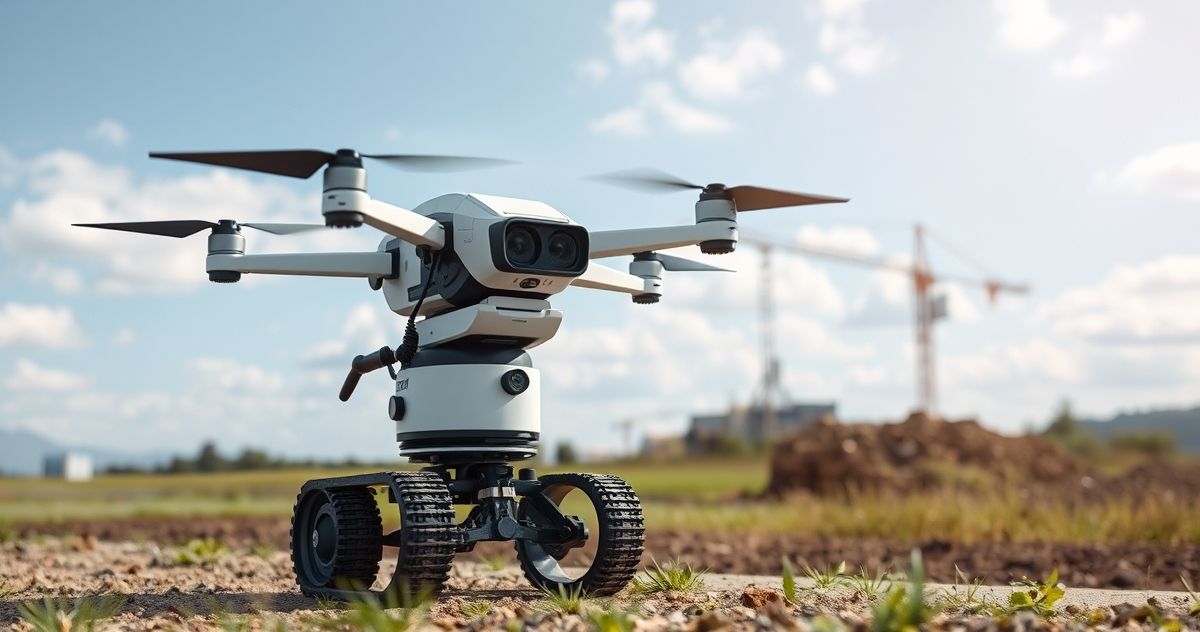AI Growing Role in the Construction Industry is revolutionizing the way we build — from initial design phases to post-construction maintenance. Once considered slow to innovate, the construction industry is now rapidly adopting artificial intelligence (AI) technologies to boost productivity, cut costs, and improve safety across the board.
Why Now?
The construction sector has long grappled with inefficiencies, cost overruns, and safety concerns. According to a McKinsey Report, large projects typically run 20% over schedule and up to 80% over budget. AI is being integrated to tackle these long-standing issues by optimizing project planning, detecting design errors early, and enhancing on-site operations.
Practical Use Cases on the Rise
- Predictive Analytics for Risk and Maintenance
AI tools can analyze data from past projects to forecast risks, delays, and cost fluctuations. Platforms like nPlan use historical data to predict timelines with remarkable accuracy, allowing companies to plan more effectively. - Autonomous Machinery and Drones
Companies like Built Robotics have developed autonomous construction equipment that can perform tasks like trenching and grading without human intervention. Similarly, drones equipped with AI can monitor site progress, detect potential hazards, and even ensure regulatory compliance. - Design Optimization with Generative AI
Generative design tools use AI algorithms to create hundreds of design permutations based on set parameters. This not only streamlines architectural planning but also ensures efficient use of materials and space. - Real-Time Monitoring and Quality Control
AI-powered cameras and sensors can monitor worker activity and machine performance to detect anomalies in real time. This helps maintain quality standards and reduces costly rework. - Labor Management and Scheduling
Workforce scheduling platforms now use AI to assign tasks dynamically based on availability, skillsets, and real-time project needs. This improves team productivity and reduces downtime.
Case Studies Making Headlines
- Obayashi Corporation: In Japan, Obayashi has developed advanced AI-driven technologies for tunnel construction. Their Moist-Cure® system ensures high-quality and durable tunnels by preventing cracks during the concrete lining curing process. This innovation enhances structural integrity and reduces delays. Obayashi
- Skanska: Skanska has leveraged machine learning to enhance safety and efficiency on construction sites. By utilizing platforms like SmartVid.io, they analyze visual data to detect safety risks, such as missing personal protective equipment. This proactive approach has significantly improved their safety protocols and reduced workplace injuries. PreScouter
Challenges to Consider
Despite the promise, the integration of AI in construction faces hurdles such as high initial investment, lack of skilled personnel to manage AI tools, and data privacy concerns. However, the long-term benefits far outweigh the initial roadblocks, especially as the industry becomes more digitized.
The Future Is Building Itself
As AI continues to mature, we can expect construction projects to become more automated, efficient, and safe. From robotics laying bricks to digital twins simulating entire buildings before construction begins, the future of construction is intelligent and highly data-driven.

